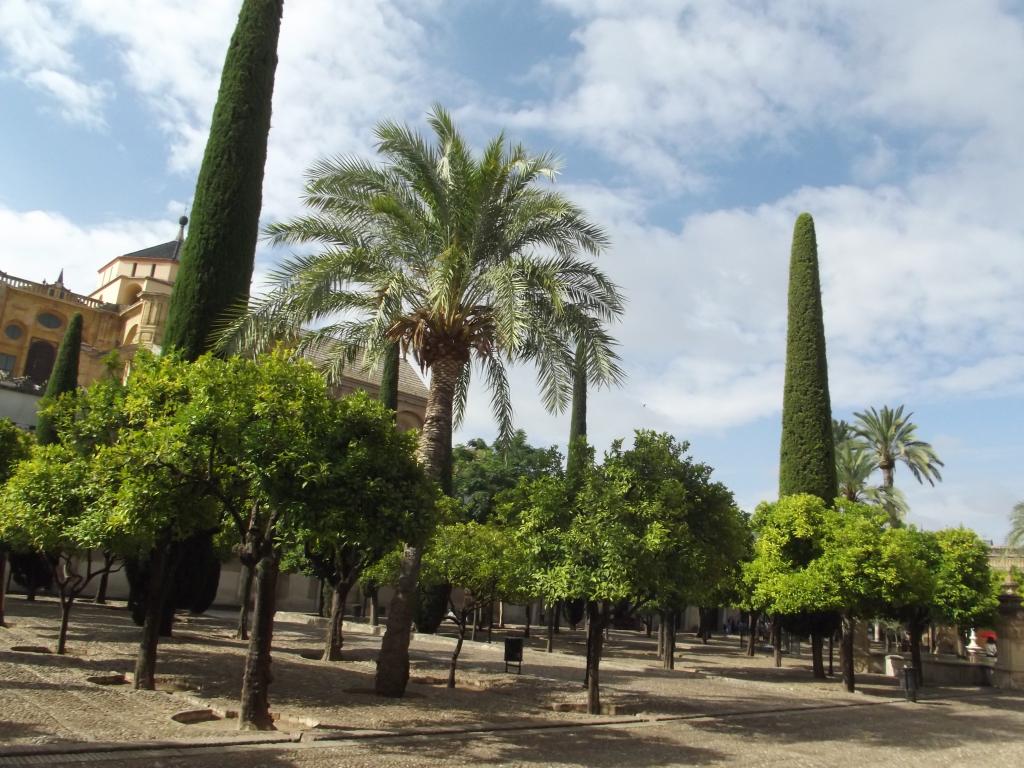
(Wikimedia Commons public domain)
Another installment from my manuscript:
Finally, I offer a grab bag of words on various subjects, to illustrate the wide range of things in everyday life which we either owe to the Arabs absolutely or for which we have borrowed words from the Arabic language.
I start with something very near and dear to most of us—food. The names of many of our most common foods—artichoke and lemon, for instance—come from Arabic.[1] It was the Arabs who introduced isbanakh (spinach) into Spain, and from there it spread throughout the rest of Europe and, to the disgust of generations of children, across North America. Our word orange comes from the Arabic naranj, which meant specifically “bitter orange.” (The initial “n” still shows up in the Spanish word for “orange,” naranja.)[2] Our word apricot derives from the Arabic al-barquq (which, oddly, means “plum” in the modern language). The tropical fruit known to us as tamarind was, to the Arabs, an “Indian date” (tamr hindi); the evergreen shrub tamarisk comes to us from basically the same source.
The word marzipan has a long and rather strange history. Today, it is the name of a perfectly disgusting paste of ground almonds, egg whites, and sugar that some people pretend to like. This was not always so, however. Originally, the very old and very rare Arabic word mawthaban referred to a king who sat still and did not go out on military expeditions. (A withab was a throne.) In the course of time, however, the term entered Latin as matapanus, the name of a coin issued by the republic of Venice with an image of a seated Christ on one side. Next, the term came to mean a dry measure—perhaps the amount of grain that could be purchased with one matapanus coin. In the next step, the word referred to a small box, usually rather elegant, that was used to hold a certain type of candy.[3] Finally, in the last phase of the word’s evolution, it came to mean the candy in the box itself.
The words sherbet, syrup, and sorbet all come from the common Arabic verb shariba, “to drink.” (And this gets into an area where a committed member of the Church fears to tread. But for the sake of completeness, let us press forward.) The Arabic word qahwa originally meant a kind of wine; now, however, it has come to mean “coffee,” and it has given us both that word and such derivatives of it as café and cafeteria. Another term for the same drink, as well as for ice creams bearing the appropriate flavor, is mocha, which comes from the port town of al-Mukha, at the southern end of the Red Sea in what is today Yemen. Many years ago, al-Mukha was the most important town in the coffee trade. (And, incidentally, where would many coffee drinkers be without sukkar to sweeten it?) Finally, in this category, I bring up arrack, or arrak, a word that will be unfamiliar to many practicing Latter-day Saints: “Arrack” is a strong, colorless liquor made of raisins or sometimes of dates. (It becomes milky white when, as is commonly done, it is diluted with water.) Perhaps the drink would be less tempting to its users if they knew that, in Arabic, araq means “sweat.”
[1] Here, and elsewhere in this chapter, I have relied heavily upon the researches of other scholars for my notes on word origins. For those who are interested in pursuing the subject further, I shall mention my primary sources. Most important among them is Enno Littmann’s Morgenländische Wörter im Deutschen. However, I have also made heavy use of Eric Partridge’s Origins: A Short Etymological Dictionary of Modern English (New York: Greenwich House, 1983). To a far lesser degree, I have used Etymologie: Herkunftswörterbuch der deutschen Sprache, vol. 7 in the series Der Grosse Duden, edited by Gunther Drosdowski, et al. (Mannheim: Bibliographisches Institut, 1963). As a last resort, I have employed speculation. Naturally, I have checked my conclusions against a wide range of modern and classical dictionaries of the Arabic language. I do not, incidentally, claim that Arabic is the ultimate source of every word discussed here. Sometimes Arabic itself borrowed the word from another language (e.g. from Greek, Persian, or Sanskrit). But I do maintain, in every instance, that Arabic is the direct or indirect source of the word as we now have it in English.
[2] It was the Portuguese who brought sweet oranges from South China soon after 1500. That is why the Arabs call such oranges burtuqal. The Germans, who first encountered the fruit when it arrived at the northern ports of Amsterdam and Hamburg sometime around 1700, still often call if Apfelsine, or “apple from China.” (Sina is an old German form of the name China; in English, we use a related word in words like Sinologist phrases like Sino-Japanese relations and Sino-American trade.)
[3] Or alleged candy, depending on your point of view.












